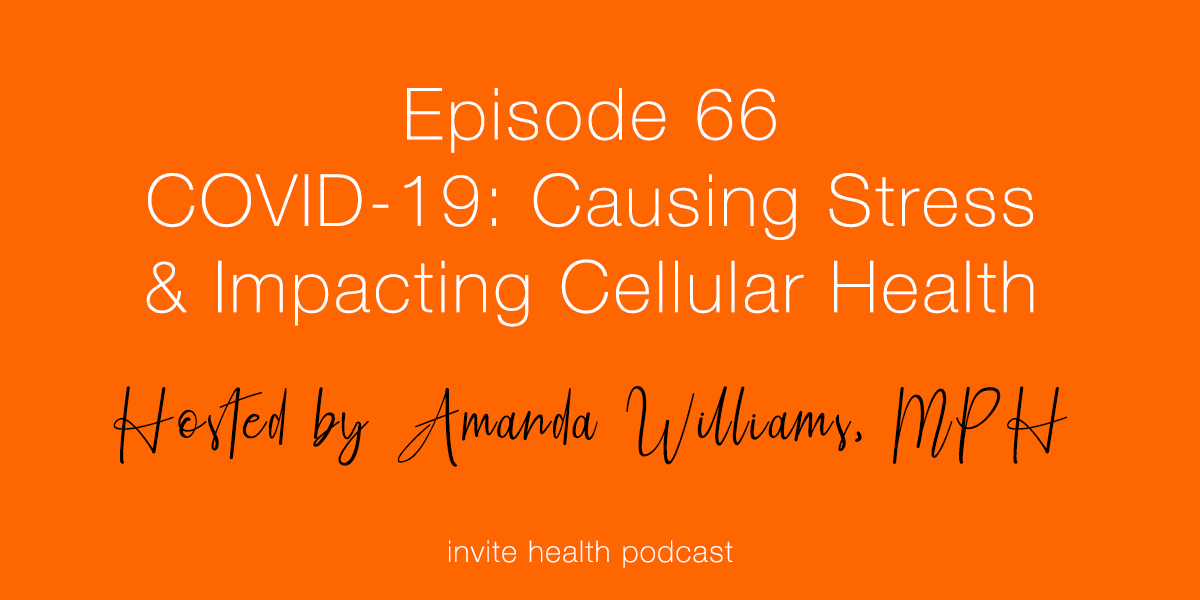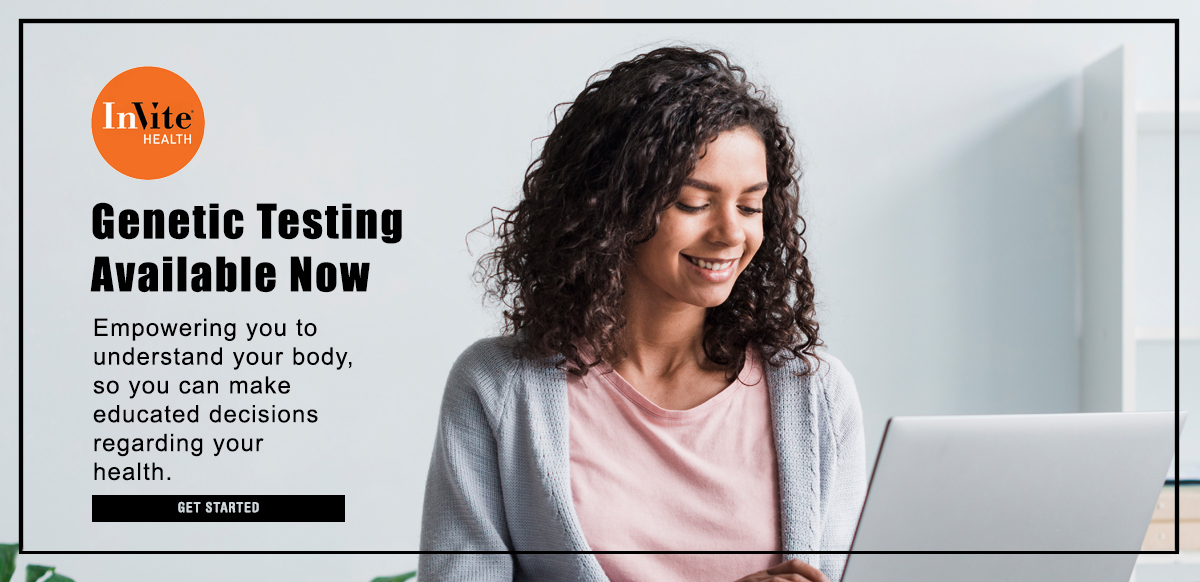COVID-19: Causing Stress & Impacting Cellular Health – Invite Health Podcast, Episode 66

Invite Health Podcast, Episode hosted by Jerry Hickey. Ph
Subscribe Today!
On today’s episode, I am going to talk about how you can assess your level of stress. This is a really interesting way to see how the COVID-19 pandemic is impacting your cellular health.
How stress impacts you on a cellular level
This pandemic is stressing out an awful amount of people. But the long term implications of chronic stress is not a good thing for our cells.
Now, the cell has different components to it, including things that make energy like the mitochondria and it contains a nucleus which contains your genetic material, the DNA and RNA. We also have what is known as telomeres. Telomeres are these protective casings at the ends of different strands of DNA. Every time that your cell divides, it loses a little bit of that protective casing. There is an enzyme called telomerase that can help to replenish your telomeres. But, here’s the catch! Chronic stress and cortisol exposure can decrease your supply of telomerase.
More Information on Managing Stress Through COVID-19. Listen Now >>
Right now, everyone is a bit stressed out and rightfully so. But you should be able to access how much damage has occurred and what we can be doing to mitigate that.
Nutrients for Stress Management
We know that stress management is a really key tool to all of this, especially in preventing that telomere shortening. The good news is that there are certain nutrients that can be beneficial when it comes to the length of those telomeres. My recommendations include B-Vitamins and Vitamin D. Individuals that have chronic disease states like heart disease will have a decrease in that telomerase enzyme activity, which means the DNA within the cell will become damage. Once damage occurs, it can lead to cell death.
Antioxidants can be beneficial, such as Vitamin C and E in the promotion in the length of our telomeres. Resveratrol is a very powerful polyphenol or antioxidant that is derivied from the skin of grapes, plants such a Japanese Knotwood. It contains very powerful antioxidants which have been shown to be able to activate sirtuin. Omega-3 fatty acids can also be beneficial. And of course, the Meditteranean diet.
Managing Stress Through Lifestyle Changes
Diet makes a huge difference when it comes to managing stress. Having high antioxidant foods from fruits and vegetables, omega-3 fatty acids from fish oil or krill oil. If you are a vegetarian or just looking for a plant based option, you should consider flax seed.
If you are following a Standard American Diet (SAD) that is high in processed, sugary foods and bad fats, you are actually doing quite a lot of damage to those protective end caps. This is why dietary intake impacts the longevity of certain populations differently.
You also should be mindful of how you handle stress and ways to reduce it. This could be through exercise, meditation and yoga in order to offset the negative impact of stress. But, you can also do a simple test that is actually going to look at your cellular age – how much your telomeres been beaten up over time.
Testing Your Cellular Age
A simple cheek swab can help you obtain this information. Invite Health offers a Cellular Aging Test that is very simple to do but very beneficial in terms of the information you will unlock.
All you have to do is order the test kit (order now for 20% off!), swab your cheek, send your test kit to our lab and within about 5 days, you will have your results. You will be able to see the impact that stress has had on your telomeres. This is a great way to be able to access what you are doing right and wrong, and what you can do to try to correct that.
Thank you for tuning in to the Invite Health Podcast. You can find all of our episodes for free wherever you listen to podcasts or by visiting www.invitehealth.com/podcast. Make sure you subscribe and leave us a review! Follow us on Facebook, Twitter and Instagram at Invite Health today. We’ll see you next time on another episode of the Invite Health Podcast.

